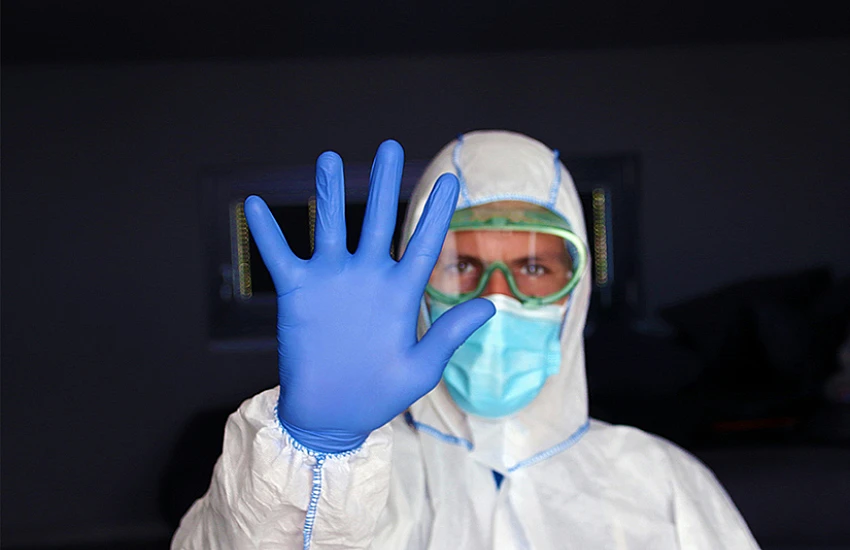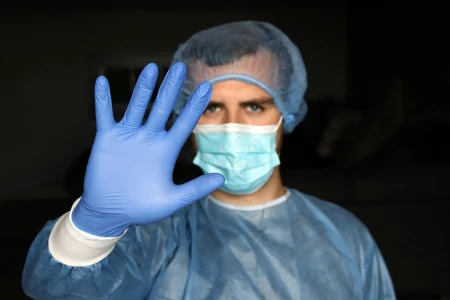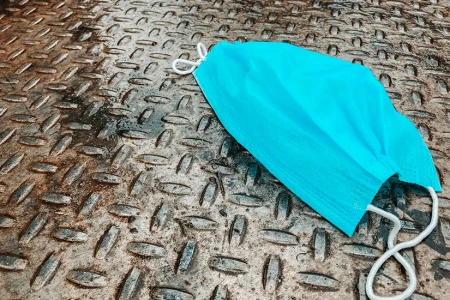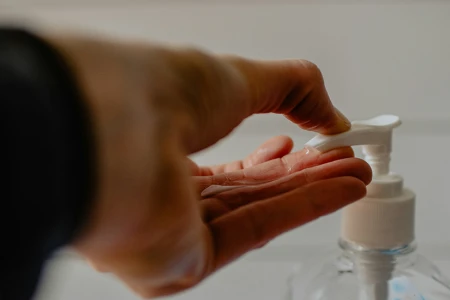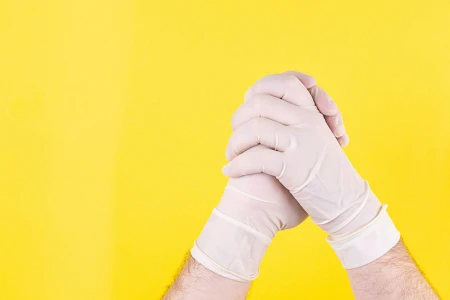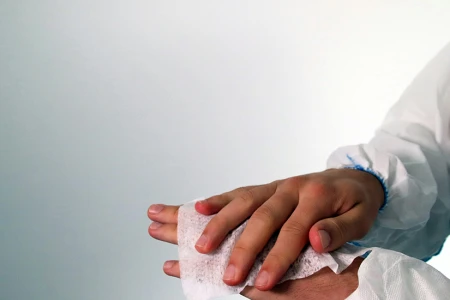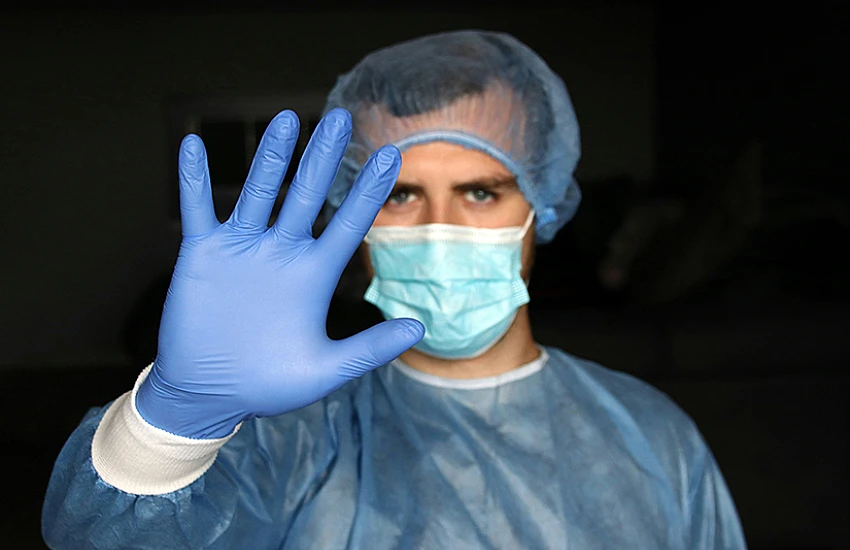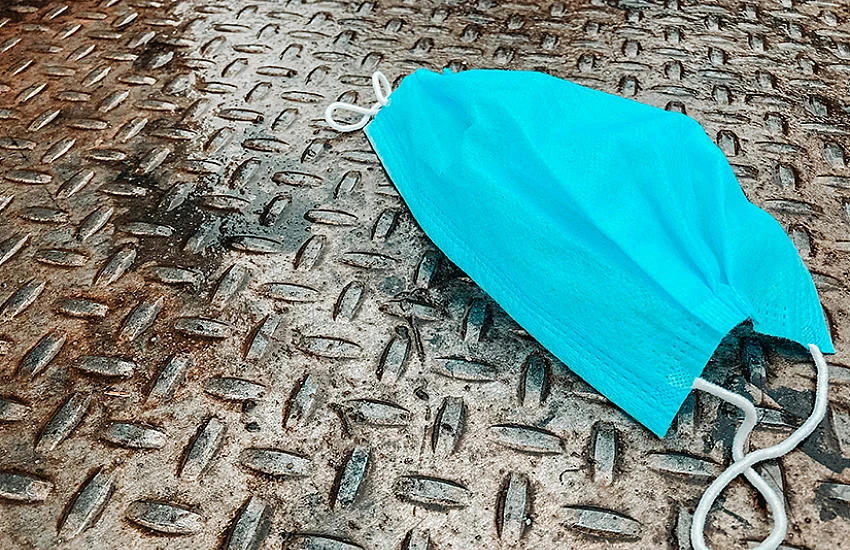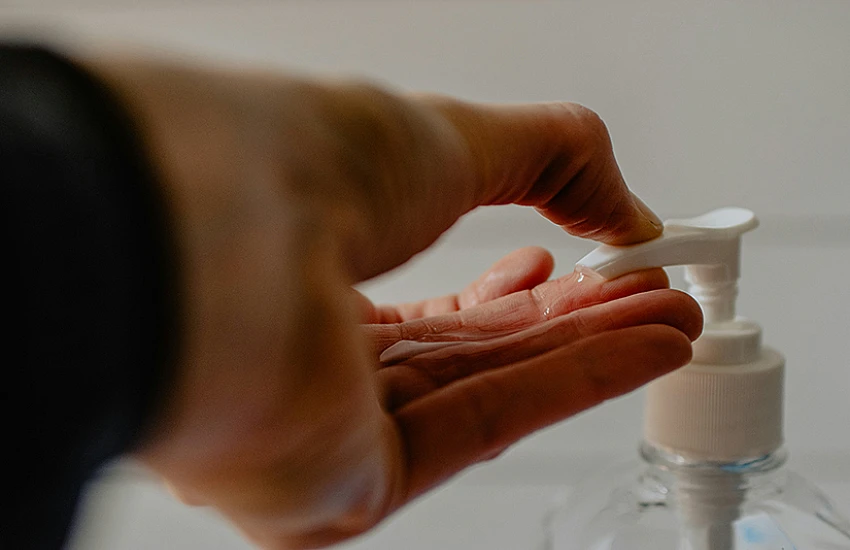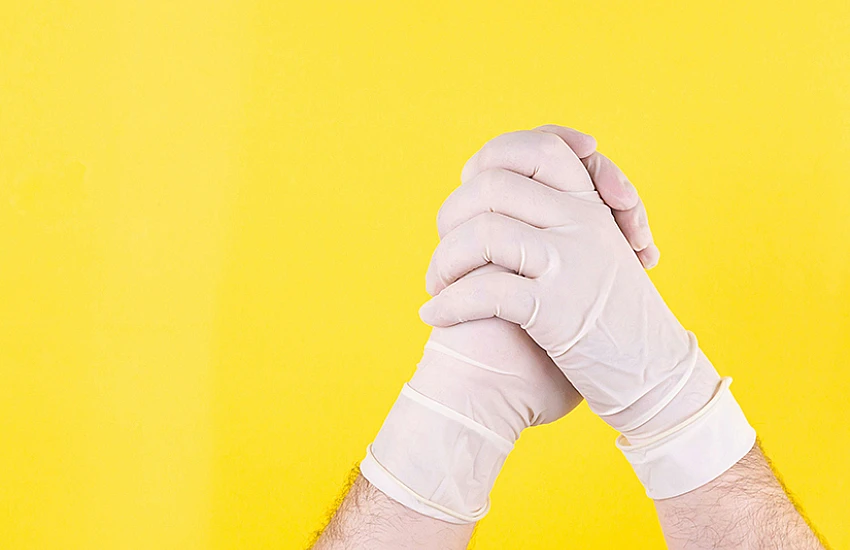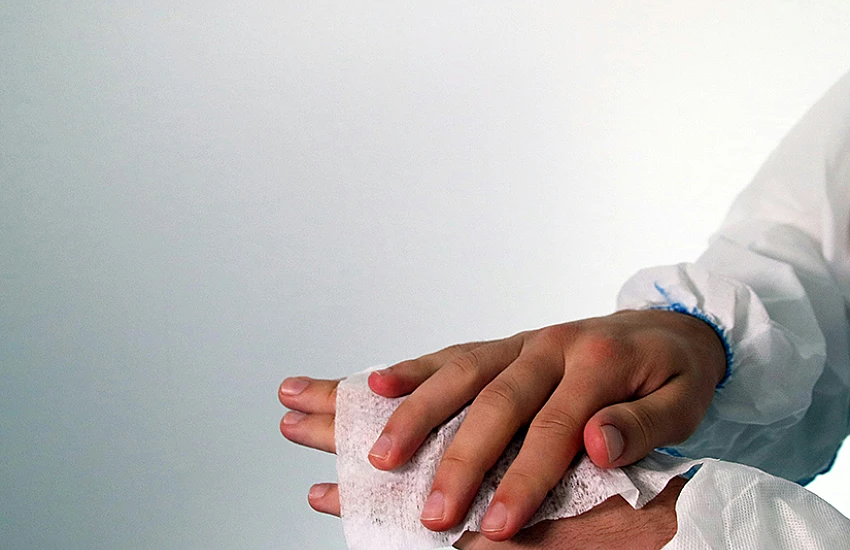Table of Contents
In today's world, where health and safety are paramount in every industry, funeral homes must also pay close attention to maintaining hygiene and ensuring safe working conditions. Working with deceased bodies requires not only professionalism and empathy but also the implementation of proper protective procedures to minimize the risk of infections and contamination. In our blog about Safety in Funeral Homes, you'll find practical tips on workplace hygiene, selecting appropriate protective gear such as gloves, disposable clothing, or masks, and methods for maintaining clean tools and environments. Following these guidelines will help protect your health and ensure the safety of coworkers and bereaved families.
Understanding Risks in Funeral Home Work
Before discussing protective accessories and methods for maintaining hygiene and safety, it's essential to understand the key risks funeral home staff face:
- Biological Hazards: Handling deceased bodies involves potential exposure to viruses, bacteria, and other microorganisms. Infectious diseases, such as hepatitis (HBV, HCV) or HIV, are particularly dangerous.
- Chemical Hazards: Chemicals used for embalming and disinfection can be toxic or irritating to the skin and respiratory system.
- Physical Hazards: Physical labor involving moving bodies or handling mechanical tools (like coffins and embalming tables) can result in injuries.
Basic Hygiene Principles in Funeral Homes
Maintaining hygiene is vital for the health of workers and visitors. Here are essential practices:
- Regular Handwashing: The simplest and most effective way to reduce infection risks. Hands should be washed before and after contact with a body and after any task that may involve exposure to contaminants.
- Use of Disinfectants: Workspaces, tools, and surfaces in contact with bodies should be regularly disinfected using products effective against viruses and bacteria.
- Proper Ventilation: Rooms used for embalming or body preparation should be well-ventilated to avoid the buildup of chemical fumes.

Essential Protective Equipment for Safe Work
Specialized accessories protect workers from biological and chemical hazards. These include:
Protective Clothing
- Disposable Gloves: Always wear gloves when handling a body. Use nitrile, latex, or vinyl gloves, depending on the procedure. For chemical work, select gloves resistant to the substances used.
- Protective Masks and Face Shields: Masks protect against harmful fumes and pathogens. For high-risk situations, FFP3 masks are recommended. Face shields offer additional protection against body fluids.
- Protective Gowns: Use disposable gowns or ones made from easily disinfected materials. They protect clothing from chemical and biological contamination.
- Protective Footwear: Closed, fluid-resistant, and easily disinfected shoes are crucial for protecting feet.

Disinfection Tools and Accessories
- Surface Disinfectants: Ensure that any surface coming into contact with a body is thoroughly disinfected after use. Products with broad-spectrum action are recommended.
- Tool Disinfectants: Instruments like scalpels and forceps must be cleaned and disinfected after every use. Autoclaves are the most effective for sterilization.
- Biological Waste Disposal Systems: Used gloves, syringes, and dressings must be disposed of in marked, specialized containers following medical waste regulations.

Mechanical Equipment Safety
- Embalming Tables: Should be easy to disinfect and equipped with systems for draining body fluids.
- Lifts and Transport Equipment: Use specialized equipment to minimize physical strain. Regular maintenance is essential for safety.
Emergency Procedures
Funeral homes must have clear emergency protocols, such as in cases of accidental contact with body fluids or exposure to chemicals. Key steps include:
- Immediate Washing: Rinse the affected area under running water for at least 10 minutes.
- Incident Reporting: Notify supervisors and log the incident.
- Health Monitoring: Visit a medical professional to assess infection risk.
Training and Procedure Monitoring
Regular safety and hygiene training is essential, covering both theoretical knowledge and practical application. Consistent monitoring ensures compliance, and any procedural issues should be corrected promptly.
FAQ – Hygiene and Safety in Funeral Homes
1. Why is hygiene so important in funeral homes?
It prevents the spread of infectious diseases, safeguards employees' health, and ensures a safe environment for bereaved families.
2. What biological risks are present in funeral home work?
The primary risks include infectious diseases like HIV or hepatitis, transmitted via contact with bodily fluids.
3. What protective accessories are essential for working with deceased bodies?
Key equipment includes disposable gloves, masks (FFP2 or FFP3), protective gowns, face shields, and disinfection supplies.
4. Are disposable gloves sufficient protection?
No, they should be used alongside masks, gowns, and face shields, with proper hand disinfection afterward.
5. How often should tools and surfaces be disinfected?
After every use and regularly as a precautionary measure.
6. What disinfectants are recommended for funeral homes?
Use products effective against viruses, bacteria, and fungi—alcohol-based, chlorine-based, or hydrogen peroxide solutions.
7. Is proper ventilation important in funeral homes?
Yes, especially in embalming rooms, to minimize exposure to harmful fumes.
8. What should be done after contact with bodily fluids?
Wash the area with soap and water, disinfect, report the incident, and seek medical consultation if necessary.
9. Are regular safety and hygiene training sessions mandatory?
Yes, to ensure workers stay updated with current safety protocols.
10. What should be done if skin is accidentally injured during work?
Clean and disinfect the wound immediately, report the incident, and undergo a health check.

